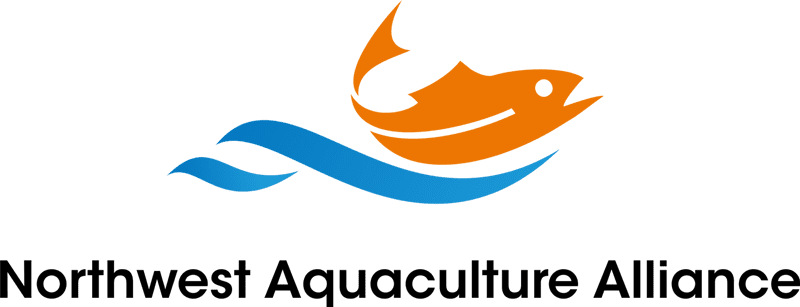Feeding the world today & in the future
why we need aquaculture
catch the Facts about modern aquaculture
In the United States, the farming of aquatic foods is highly regulated at both the federal and the state level.
Such regulations ensure that aquaculture is not only safe for the environment, but also beneficial for the human health and the health of the economy—by creating living-wage jobs and bringing delicious, nutritious, locally grown food to your table.
Five Key Facts about Fish Farming:
It’s Safe for Our Environment
The science has spoken. In addition to numerous peer-reviewed scientific studies showing the environmental safety of modern aquaculture, the US National Oceanic and Atmospheric Organization (NOAA) just released an exhaustive study of net-pen farming in Washington State and found there to be no adverse impacts to wild salmon, Orcas, and other endangered species or our local marine habitats. For more information, please visit:
- https://drive.google.com/file/d/1mPef6Qw6hSIykZB3T5JrdfqHWSAfEPl3/view
- https://thefishsite.com/articles/no-negative-impact-from-aquaculture-in-puget-sound-says-noaa
It’s Highly Regulated and Carefully Monitored
In the United States and the Pacific Northwest, the modern aquaculture industry operates within a stringent comprehensive regulatory environment that both protects our marine environments and ensures that the highest food safety standards are met—and often exceeded.
Advancements in technology and strict reporting requirements ensure the comprehensive monitoring of water quality parameters such as oxygen levels, temperature, sedimentation, tidal currents, and weather conditions.
It Helps Feed the World
Modern aquaculture is the best solution to provide quality nutrition to a hungry planet. With the lowest energy-to-pound ratio and greenhouse gas emissions of any farmed protein source, fish farming is the most sustainable and planet-friendly way to source locally grown, delicious, and nutritious seafood. A robust fish farming industry in the Pacific region helps to ensure healthy seafood remains an affordable and locally farmed choice for the dinner table.
- https://www.nature.com/articles/d41586-021-02476-9
- https://woods.stanford.edu/news/stanford-experts-highlight-oceans-role-solving-food-insecurity
- https://modernrestaurantmanagement.com/the-rise-of-sustainable-food-sourcing-considerations-for-seafood-restaurateurs/
It’s a Solution to Overfishing and Depleted Wild Fish Stocks
In just the last 50 years, the number of depleted wild fish stocks have tripled globally, largely due to overfishing. As demand for seafood as a critical source of nutrition has grown exponentially, the problem has worsened. This is a critical issue in the Pacific Northwest where habitat destruction and pollution have decimated once-abundant wild salmon runs. Advancements in modern aquaculture offer a sustainable solution to meeting the growing global demand for seafood and fish-oil products, without contributing to the continuing decline of wild fish stocks.
It Creates Living Wage Jobs in our Rural Coastal Communities
Modern aquaculture offers tremendous opportunities for increasing the number of living-wage jobs available in our economically struggling coastal and rural communities. From the hatchery to the fish farm to the processing plant to the restaurant table, a robust fish-farming industry contributes to a sustainable and strong local economy.
The benefits of aquaculture
For our health
- Americans today consume just a little over 15 pounds of heart-healthy seafood (finfish and shellfish) per person annually, a number that falls significantly short of USDA dietary recommendations.
- A recent study shows that 95 percent of American children are omega-3 deficient. Aquaculture makes nutritious seafood more affordable.
- Public health experts encourage people to eat seafood at least twice a week for optimal health. Currently, an estimated 84,000 premature deaths occur in the U.S. due to the failure to eat enough seafood.
- Aquaculture helps make healthy, nutritious seafood more widely available and affordable.

For Our Economy
- Currently, more than 60 percent of the seafood consumed in the United States is imported. These seafood imports contribute yearly to a massive trade deficit.
- In 2018 alone, the United States imported an estimated $4 billion worth of salmon.
- Approximately 60 percent of imported seafood products (salmonids, tilapia, shrimp/shellfish) are farm-raised in countries such as Norway, Scotland, Chile, Vietnam, Thailand, and China.
- Aquaculture gives us the opportunity to participate in this global trend toward farming the seas and inland waters and to do so to the benefit of our region’s economy by providing living-wage jobs.

For the Environment
- Aquaculture production (finfish, shellfish) produces the lowest carbon footprint of any kind of animal protein production and requires less space and feed. It is not only safe for the environment; it is beneficial.
- The global aquaculture community has embraced the challenge of reducing the use of fishmeal in feed, substituting algae oils and other non-fishmeal sources.
- If we are concerned about reducing the environmental impacts of animal production, then we should promote aquaculture.
ABOUT US
The NWAA advocates for the sustainable production of aquatic foods and represents aquaculture producers and support-related businesses in Washington, Oregon, Idaho, Alaska, Hawaii, and British Columbia.
THE ORGANIZATION
NWAA Newsletter
Sign up to receive the latest NWAA news.
